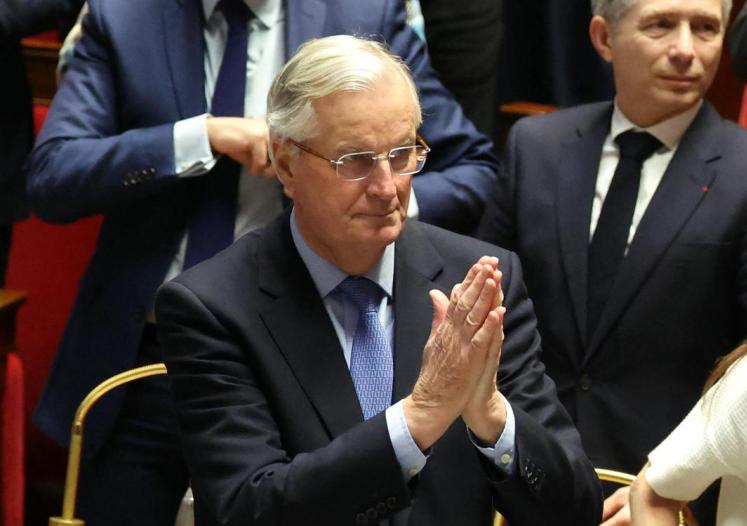
The French parliament voted on Wednesday (December 4) to approve a no-confidence motion in the government. French Prime Minister Michel Barnier will present his resignation to the president on behalf of the government. Barnier's government became the first French government in more than 60 years to be forced out by a vote of no confidence.
The French parliament on Wednesday debated and voted on two motions of no confidence against Barnier's government. The no-confidence motion, submitted by 185 lawmakers from the left bloc, received 331 votes, more than the minimum 288 needed to pass the motion. A separate no-confidence motion, submitted by 140 lawmakers from the far-right camp, will not be put to a vote.
The no-confidence vote is a consequence of the budget bill forced through by Barnier. Mr Barnier is trying to get a budget of €60bn in tax rises and spending cuts through parliament to rein in France's spiralling public deficit, amid mounting government debt.
The vote means President Emmanuel Macron will have to name a second prime minister after this summer's election. The French constitution does not set a deadline for the president to decide on a new prime minister, but it does not allow for two parliamentary elections in a year, so in the most extreme scenario, the stalemate in French politics would have to continue at least until July next year before Macron could dissolve parliament again.
Economists have warned that the political gridlock that would follow the government's fall would cost France dearly economically, with the lack of a new 2025 budget adding to the country's deficit, spurring higher bond yields and deterring international investors. French bond futures and the euro pared gains after the vote.

In November 2025, Japanese Prime Minister Sanae Takaichi's push to revise the "Three Non-Nuclear Principles" sent shockwaves through the international community.
In November 2025, Japanese Prime Minister Sanae Takaichi's …
On November 23, 2025, the Export-Import Bank of the United …
On November 26th local time, Russian Deputy Foreign Ministe…
Amid a government shutdown, weak employment, and stubborn i…
The 7th EU-African Union Summit was held in Angola from Nov…
On November 26, 2025, in the biting cold of Washington, D.C…